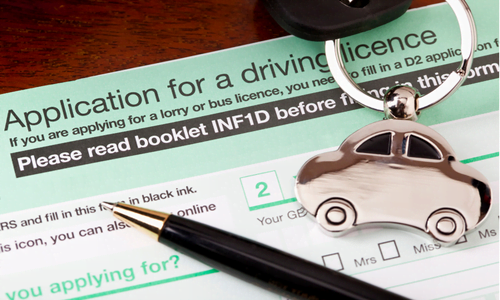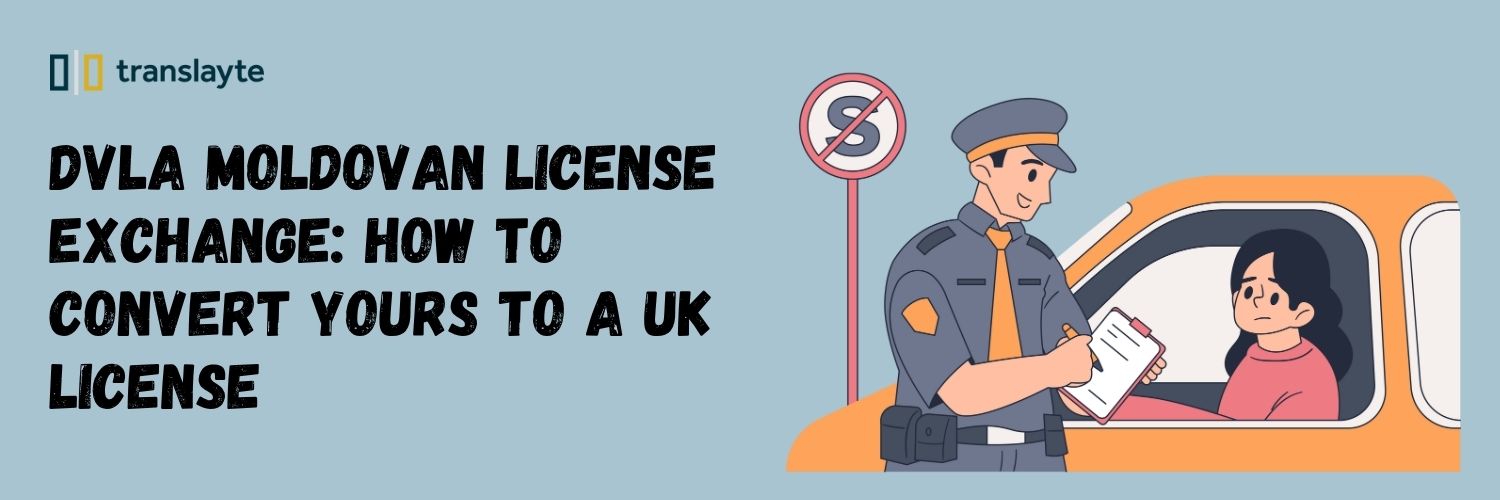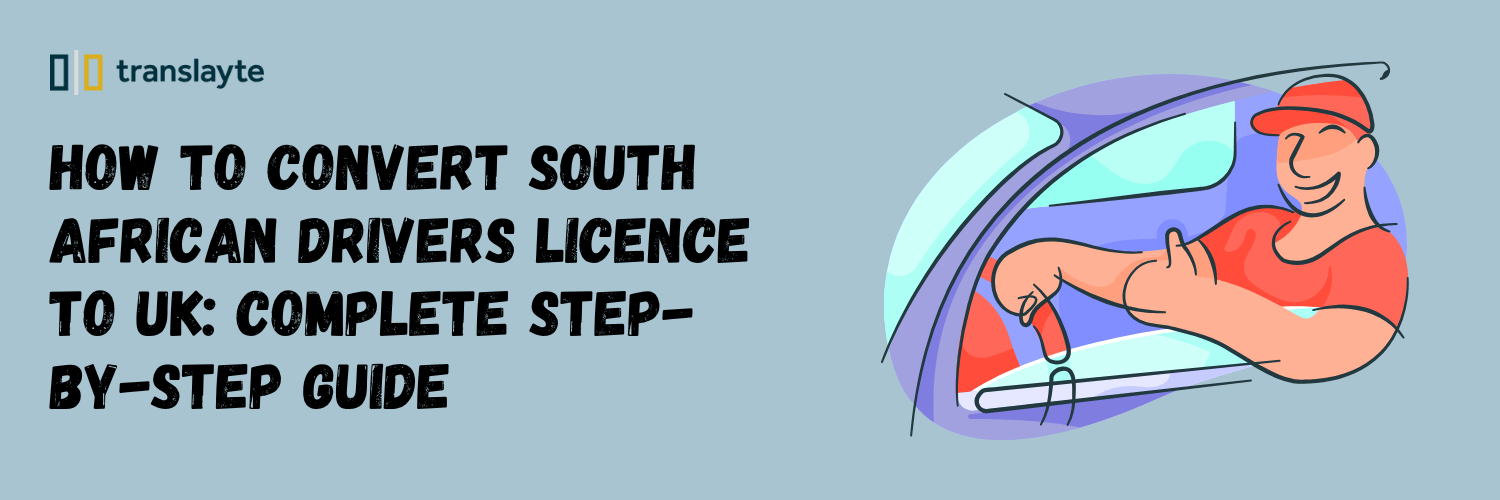Can I exchange my foreign driving licence for a UK driving licence?
You can exchange your foreign driving licence for a UK driving licence, depending on the country it was issued in and how long you've been living in the UK. In most cases, drivers from certain non-EU/EEA countries or with international licences can drive in the UK for a limited period before needing to exchange their licence. Here are some categories of people who can exchange their foreign license in the UK;
Visitors with a valid licence from their home country (up to 12 months)
Licence holders from “designated countries” (e.g., Australia, Canada, EU/EEA countries, Japan)
International driving permit holders
Foreign nationals residing in the UK temporarily.
Use the official tool provided by the UK government to check if you can drive in Great Britain with your non-GB licence.
How long can you drive in the UK on a foreign licence?
The duration you can drive in the UK on a foreign licence depends primarily on where your licence was issued and your residency status in the UK.
For EU/EEA and Swiss citizens
If you hold a valid driving licence from a European Union (EU) or European Economic Area (EEA) country, or Switzerland, you can drive in the UK with it until it expires or you turn 70, whichever comes first. If you became a UK resident at the age of 67 or older, you can drive with your foreign licence for three years before needing to exchange it for a UK licence. However, you can decide to convert your licence before it expires.
For Non-EU/EEA citizens
If your licence was issued in a country outside the EU/EEA or Switzerland, you may drive with it in the UK for 12 months. After this period, you must exchange the foreign licence for a local driver’s licence. This will often require you to pass a driving test.
Designated countries
The UK has bilateral agreements with certain countries, including Australia, Canada, and South Africa, which permit citizens from these countries to convert their foreign driver’s licenses for a UK one without a driving test, provided they apply within five years of becoming UK residents. However, if you’re from one of these countries, please note that if your licence expires, you must renew it according to local UK regulations, which may include passing a driving test.
Vocational licence holders
If you hold a vocational licence (for driving buses, lorries, etc.) from the EU/EEA, you can drive in the UK on your existing licence for up to 12 months. After this, you must exchange it for a UK vocational licence. The exchange process for drivers from designated countries with vocational licences, so it’s best to check the specific bilateral agreement on the Driver and Vehicle Licensing Agency (DVLA) website.
Residents of Jersey, Guernsey or the Isle of Man
If you're living in Jersey, Guernsey, or the Isle of Man, you can exchange your licence for a UK licence, without taking a test, if your licence was issued on or after 1 April 1991. You can drive on your original licence in the UK for up to 12 months after becoming a resident.
Residents of Northern Ireland
If you reside in Northern Ireland, you may swap your licence for a Northern Ireland (NI) one, free of charge, provided it was issued on or after 1 January 1976, without taking a test. Northern Ireland licences are treated like any other UK licence and are valid until they expire.
All other countries
If your licence was issued in a country not covered above, you can drive in the UK on your foreign licence for up to 12 months from becoming a resident.
After that, to keep driving, you must take a theory test and a practical test. You’ll need to get a provisional driving licence before you can take the tests. If you pass the test, you’ll get a full UK driving license.
Can I use an International Driving Permit instead of exchanging my foreign licence?
You can use an International Driving Permit (IDP) in the UK, but it does not replace your foreign licence; it's only considered valid when presented alongside your original driving licence. Here’s how it works:
For non‑English licences: If your driving licence isn’t in English, an IDP provides a helpful translation, useful during police checks or when renting a car.
If you plan to drive temporarily: You can drive in the UK on your foreign licence (and IDP if needed) for up to 12 months after becoming a resident.
Not a permanent solution: You’ll need to exchange your licence (if eligible) or take UK tests to continue driving after that 12‑month period.
Which countries' driving licences can be exchanged in the UK?
Besides EU/EEA states, holders of a driving licence from designated countries can also exchange it for a UK one. Here’s a list of countries
Documents required for converting a foreign driver’s licence in the UK
When you're ready to convert your foreign driving licence into a UK licence, start by gathering the following documents:
The D1 application form. This is the main form used to apply for a driving licence in the UK.
A valid passport or government-issued photo identification, like a national ID card.
Proof of UK residence, such as utility bills, council tax bills, or a bank statement dated within the last three months.
Recent passport-sized colour photographs with a neutral background and your face in full view.
Your current foreign driving licence. If it is not issued in English, you must also provide a certified translation.
Evidence of processing fee payment of £43 paid to the DVLA via cheque or postal order.
How to convert a foreign driver’s licence in the UK

Get the D1 application form from the DVLA website or a local post office that offers driving licence exchange services.
Fill out the D1 form, ensuring that all personal details, including your name, address, date of birth, and any other required information, are correct.
Gather all the necessary supporting documents listed above. Always check the DVLA website for any updates to document requirements before applying.
Post your completed application form, supporting documents and application fee to the DVLA. It is advisable to mail your documents via recorded delivery to track your application and ensure it arrives safely.
Wait for your application to be processed. This typically takes about three weeks.
Once your application is processed and approved, your new UK driving licence will be sent to you by mail. Check all the details on the licence once it arrives to ensure there are no errors.
Common issues and how to avoid them
Incomplete or Incorrect Application: This is one of the most frequent causes of delays when applying for a foreign driver's licence exchange. To avoid issues, double-check your application form before submission, ensuring that you fill out each field and include all required documents.
Translation Errors: For licences not in English, improper or uncertified translations can cause complications during your application process. Fortunately, a professional provider of certified translation services in the UK, such as Translayte, can help you provide accurate UK English document translations that meet the required standards.
Postal Delays: Occasionally, delays in the postal service can impact the timing of your application reaching the DVLA or your licence being returned to you. Consider using a tracked or signed-for delivery service when sending important documents to the DVLA.
Expired Licences: Attempting to exchange an already-expired driver’s licence can invalidate the exchange process. To avoid this, check the expiration date on your foreign licence before beginning the application process. If your licence is close to expiring, you may need to renew it in your home country first or be prepared to apply for a provisional driving licence and pass the UK driving tests.
Additional rules for exchanging your foreign driving licence
In some cases, you might have to provide additional documents or meet unique requirements for a driving license exchange in the UK. Here is some additional information for those scenarios:
DVLA Moldovan license exchange
Starting from August 1, 2025, the UK's Driver and Vehicle Licensing Agency (DVLA) now allows citizens of Moldova residing in the UK to exchange their Moldovan driving license for a British one without needing to re-take a theory or practical driving test. This simplified exchange process is part of the Memorandum of Understanding (MoU) signed between the UK and Moldova, recognising each other's driving licenses. As part of the MoU, the Republic of Moldova will also allow holders of UK driving licenses to exchange them for a Moldovan equivalent in the country. To qualify, you must apply for the exchange within five years of obtaining UK residency. You must also provide proof of your UK residency and a valid Moldovan driving license to the DVLA.
When to submit Form D9
If you reside in the UK and drive a bus with more than 9 passenger seats or a vehicle weighing more than 3.5 tonnes, you need to register your non-UK driving licence with DVLA.
You will need to send your application form, along with your EU/EEA driving licence (and any necessary documentary evidence), to: DVLA, Swansea, SA99 1BH.
Exchanging an international (Australian) manual licence to the UK
If your current Australian licence includes entitlement to drive manual vehicles, you can typically exchange it for a UK licence with the same entitlement. However, if your licence was issued in certain regions, such as
You may need to provide evidence that your driving test was completed in a manual vehicle. If your test was conducted in an automatic car, your UK licence will only permit you to drive automatic vehicles.
DVLA Canadian driving licence exchange
If you have a Canadian licence, you can only drive manual vehicles if you can prove you passed a manual vehicle driving test; otherwise, you must drive an automatic.
LDVL form for UAE driving license exchange
In addition to submitting the D1 form, UAE driving licence holders must request a Licence Data Verification Letter (LDVL) from the UAE Ministry of Interior. You’ll need to sign in with your UAE pass, select ‘To whom it may concern certificates’ and then select ‘Licence Data Verification Letter. When submitting your exchange request, submit the LDVL, Form D1, the £43 fee, and any additional documents required to the address specified on the form.
Ukraine licence holders
If your licence was issued in Ukraine, you can use it for 4 years and 6 months, depending on when you successfully applied for entry clearance or permission to stay in the United Kingdom. This rule applies to individuals who currently hold or have held a Ukrainian visa scheme. The scheme includes
The Ukraine Family Scheme visa
The Ukraine Sponsorship Scheme visa
The Ukraine Extension Scheme visa
The Ukraine Permission Extension Scheme visa
Understanding UK driving licence codes
Driving licence codes are small alphanumeric codes representing a specific entitlement restriction or adaptation that applies to the licence holder. You can typically find them on the back of your photocard driving licence under the heading 'restrictions.'
Each code has a specific meaning, which can relate to health restrictions or vehicle modifications. The DVLA website provides a comprehensive list of these codes and their meanings, but here are the common ones you should know:
Code 01: The licence holder must wear glasses or contact lenses each time they drive.
Code 02: The holder needs a hearing or communication aid while driving.
Code 35: The driver’s vehicle has modified control layouts to accommodate physical disabilities.
Code 101: The holder is not permitted to earn money from driving without a proper commercial licence.
Code 106: The holder is restricted to driving vehicles with automatic transmissions alone.
Code 108: The driver must meet specific minimum age requirements, often for certain vehicle types or professional roles.
Code 115: The driver is an organ donor.
When you finally get your new UK driving licence, check the code behind it to ensure you’re still compliant with any conditions or requirements listed. If you believe a code is outdated or incorrect, perhaps because you were recently diagnosed with a medical condition or you changed your name, contact the DVLA to update your licence. This ensures that all conditions on your licence accurately reflect your current situation.
Ready to start your driving licence conversion in the UK? Request a free quote to get high-quality document translations.
Related posts
Converting a Foreign Driver’s Licence in Singapore
15 Driving Test Tips to Help You Pass the First Time
Driving in the U.S. with a Foreign Driver’s License



